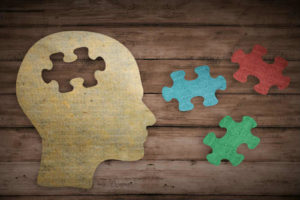











Personality has always been a hot topic for psychologists and mental health professionals who wanted to shed light on the human mind’s vast complexity. When Psychoanalyst Carl Jung developed his theories on the subject, they were considered groundbreaking and paved the way for the creation of one of the most popular personality assessment tools, the Myers-Briggs personality test, developed and maintained by the Myers-Briggs Foundation to ensure its integrity.

Today, this test is used by career coaches, psychotherapists, and couples counselors all around the world. It is a simple and elegant tool that gives you valuable insights about yourself and can help you make conscious decisions towards a happy and fulfilling life. The Myers Briggs Company is the official publisher of the MBTI assessment, further establishing its credibility and widespread use.
But before we dive deeper into this subject, let’s start by having a basic understanding of what experts call human personality and its main components.
In a nutshell, personality is a set of relatively stable traits that characterize a person’s mental, emotional, and behavioral reactions. It is what distinguishes you as an independent and self-aware individual. From how you react to anxiety and stress to which career path you choose to invest in, your personality type influences every aspect of your life.
Almost all personality psychology experts agree that two fundamental components make up our personality: temperament and character, which together encompass various personality traits.
Temperament is hereditary and represents biological (neurological) characteristics that influence various psycho-social features like self-control, inner balance, and sociability. The particularities of your temperament are related to the somatic structure of the nervous system, which dictates your mental energy levels and flexibility of cognitive processes. The best example of temperament traits is introversion-extroversion.
As for the character, this construct comprises different psycho-moral qualities that manifest at a cognitive (thinking), emotional, and behavioral (actions and decisions) level. Unlike your temperament, character traits begin to take shape under parental influence. The values, norms, beliefs, and habits that your caregivers adhere to will become part of your character. But unlike temperament, your character traits are dynamic and can change under different circumstances.
The Myers-Briggs personality test combines temperament and character traits into 16 types, which give clinicians and counselors a better sense of how their clients relate to themselves, others, and the world. Personality theory, particularly the Myers and Briggs model, plays a crucial role in understanding individual differences and behaviors based on these personality types.
The Myers-Briggs Type Indicator (MBTI) is a renowned personality assessment tool designed to help individuals understand their personality preferences and tendencies. Developed by Isabel Briggs Myers and her mother Katharine Cook Briggs, the MBTI is grounded in Carl Jung’s theory of psychological types.
This comprehensive tool categorizes individuals into one of 16 distinct personality types, each represented by a unique four-letter code. These codes are derived from four preference pairs: Extraversion/Introversion, Sensing/Intuition, Thinking/Feeling, and Judging/Perceiving. By identifying your personality type, the MBTI provides valuable insights into how you interact with the world, make decisions, and process information.
Personality types offer a framework for categorizing individuals based on their consistent patterns of thinking, feeling, and behaving. The MBTI is one of the most widely recognized and utilized personality typing systems, applied across various fields such as education, employment, and personal development.
Understanding your personality type can illuminate your strengths, weaknesses, and preferences, fostering personal growth and enhancing your relationships with others. By recognizing these traits, you can better navigate your interactions and make more informed decisions in both your personal and professional life.
The MBTI is built on four fundamental preference pairs, each representing a different aspect of personality:
The MBTI test is a self-report questionnaire designed to uncover your preferred ways of thinking, feeling, and behaving. By responding to a series of questions about your preferences and tendencies, the test helps identify your personality type. Typically consisting of around 90-100 questions, the MBTI test takes approximately 30-60 minutes to complete. The results provide a detailed profile of your personality type, offering insights into your natural inclinations and how they influence your interactions and decisions.
The MBTI personality test has a broad range of applications, making it a versatile tool for various contexts:
By exploring the MBTI and its applications, individuals and professionals alike can harness the power of personality assessment to enhance their understanding of themselves and others, leading to more fulfilling and productive interactions.
Despite heated debates, mental health experts who promote eclectic and integrative approaches acknowledge the MBTI is a reliable model that can have significant implications for counseling and psychotherapy.
To quote a paper from the Journal of Psychotherapy Integration:
“Recognizing that multiple theories and techniques are important in the “integral forest” of psychotherapeutic practice, integral therapists do not devalue any of the existing approaches, but rather emphasize the need to acknowledge and attend to as many dimensions of patients’ being-in-the-world as possible (Marquis & Wilber, 2008).”
Furthermore, some experts believe the Myers-Briggs Personality Test can be a valuable tool for selecting the therapeutic approach that works best for each client.
Although it may not accurately predict the therapeutic outcome, current evidence suggests the Thinking-Feeling dimension may give counselors a glimpse into how clients respond to cognitive approaches. More specifically, individuals who prefer Thinking (desire for logic and reason) tend to respond well to cognitive-behavioral strategies (Jinkerson et al., 2015).
Despite the criticism it has received over the years, the Myers-Briggs personality test has proven to be a valuable tool for counselors and therapists. For example, your personality type may explain why you tend to overthink your decisions, feel anxious in large groups, or have trouble connecting with others on an emotional level.
A person’s personality type is generally stable but can change subtly over time due to various life experiences. This understanding can help in providing more tailored therapeutic interventions.
Based on your type, a licensed counselor can help you set goals that will allow you to gain a better sense of your identity and adjust to challenging situations. In terms of career counseling, the Myers-Briggs personality types can help clients select career options that bring them satisfaction and fulfillment.
These brief descriptions above merely scratch the surface of the full range of information personality inventories can provide. There are two recommendations to take into consideration.
The first is to explore your type and dive deeper into understanding the characteristics your type truly entails. It does not help to only have an abbreviated version of each type.
The second is to take the inventory knowing these assessments are not a full description of who you are as a person. Personality typing can help you understand yourself better by providing insight and awareness that you might not have had before.
Even though you might share a personality type with many people, you will experience your particular type through the lens of your own uniqueness and subtle differences. Long story short, if you wish to discover your personality type and understand how it reflects your everyday life, make sure to consult a licensed counselor.
Sources